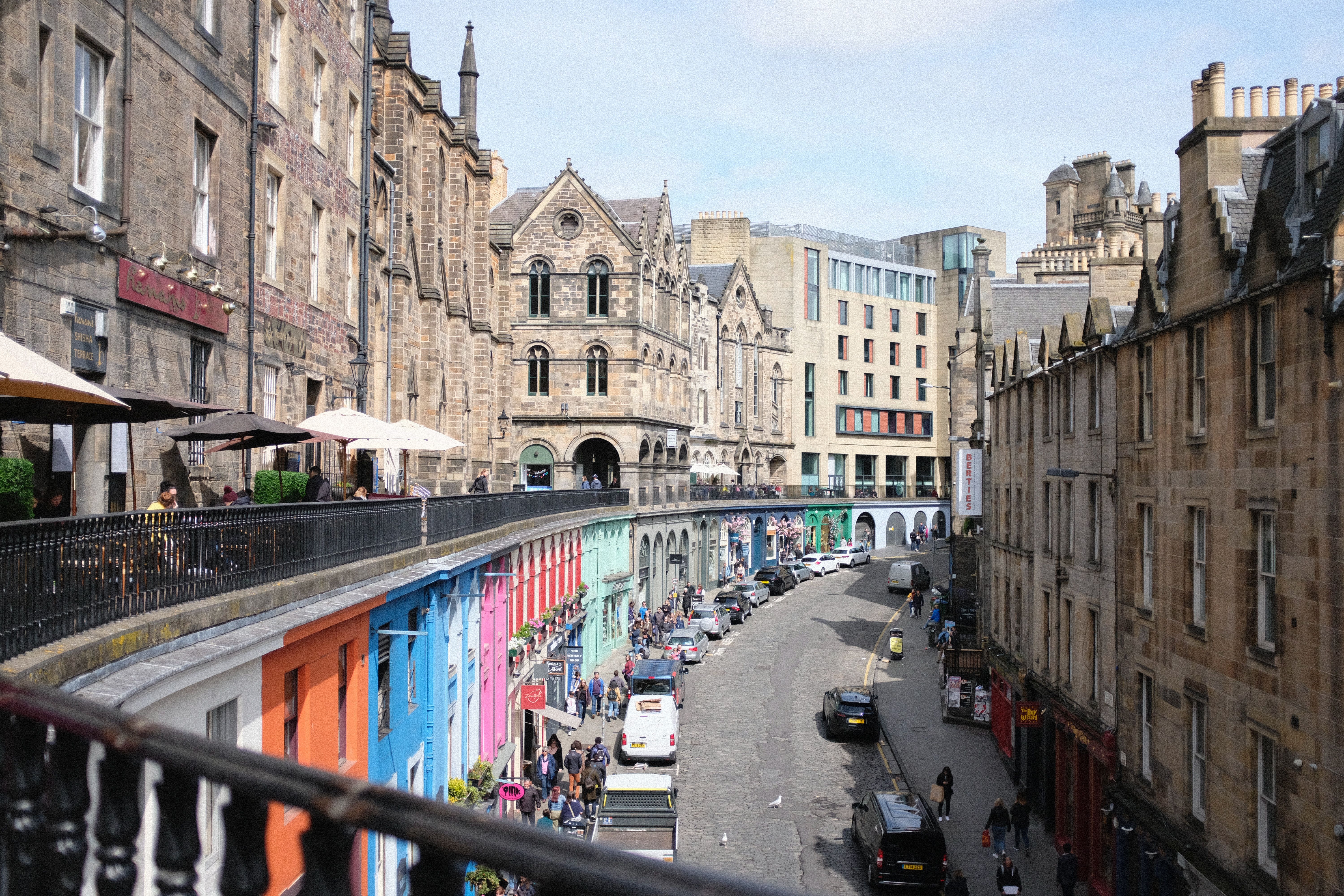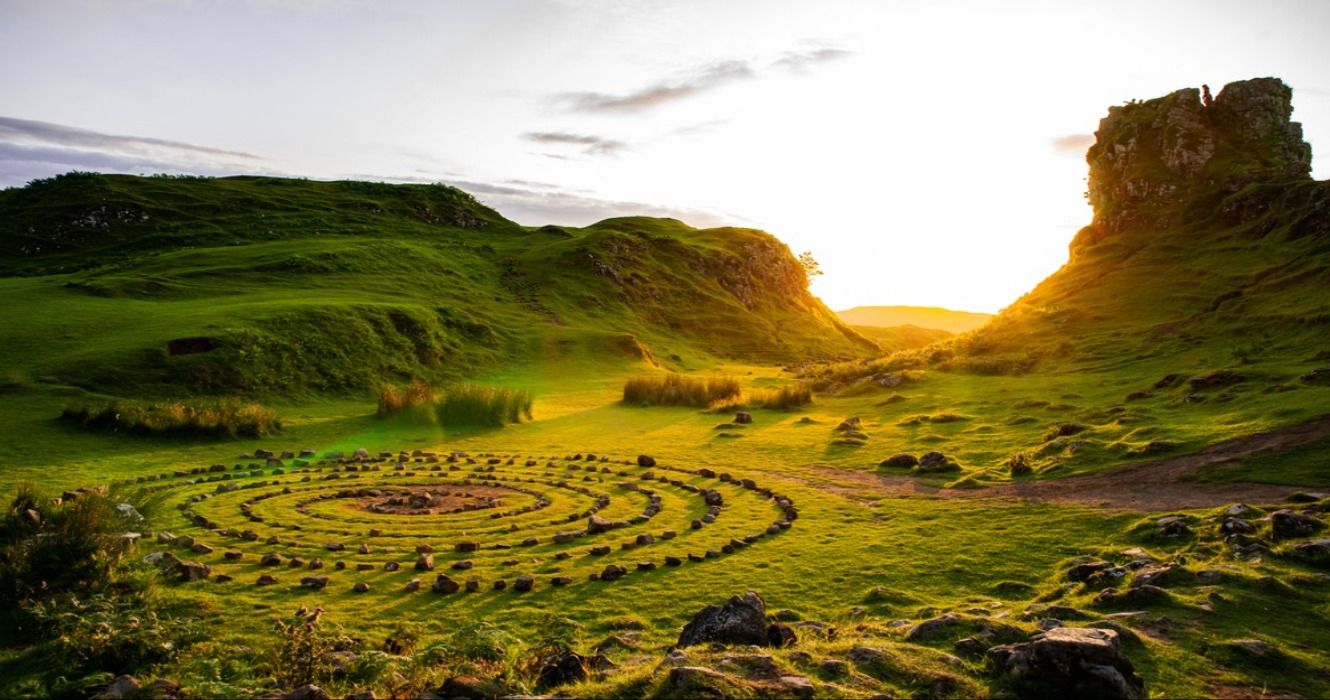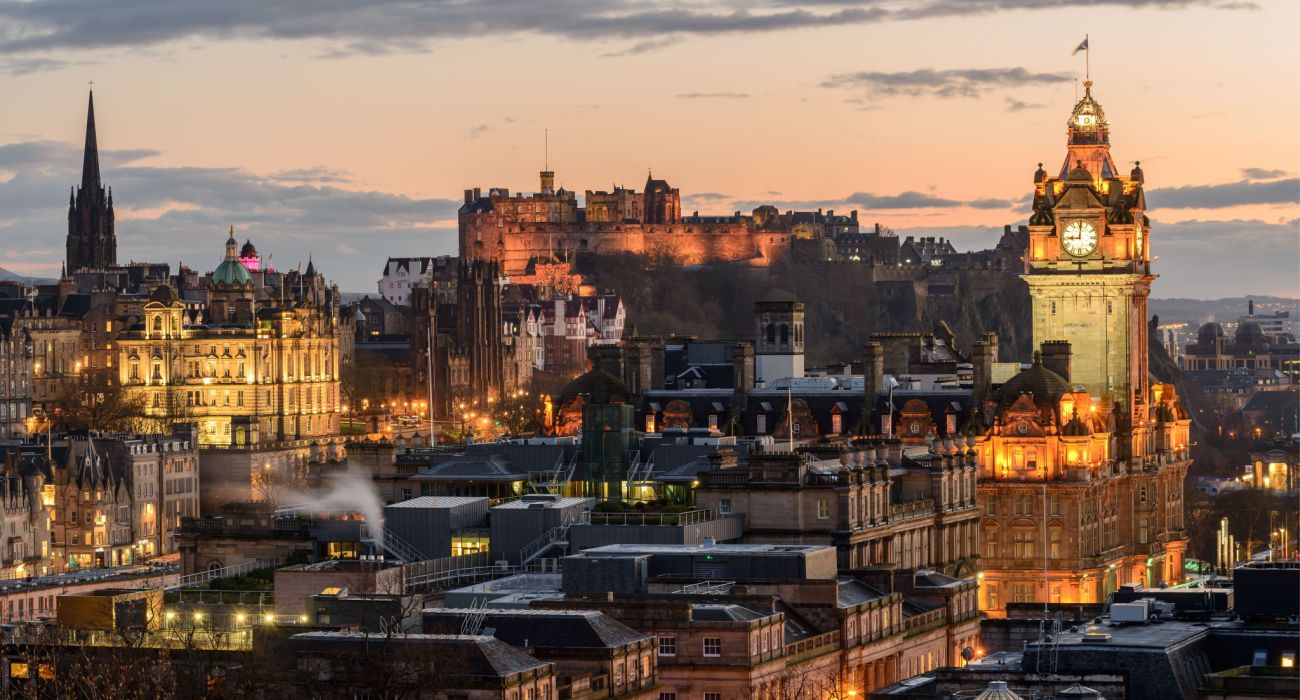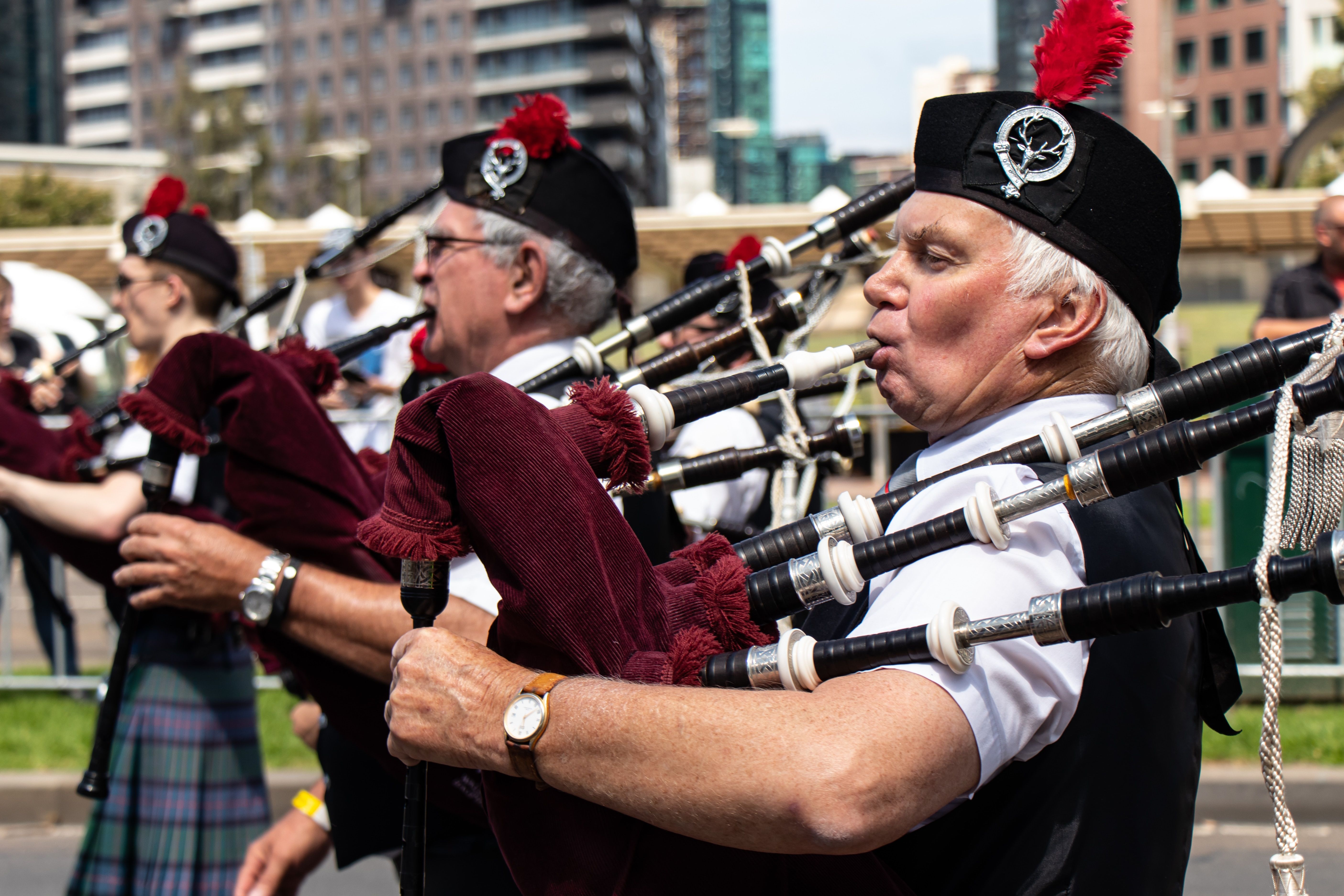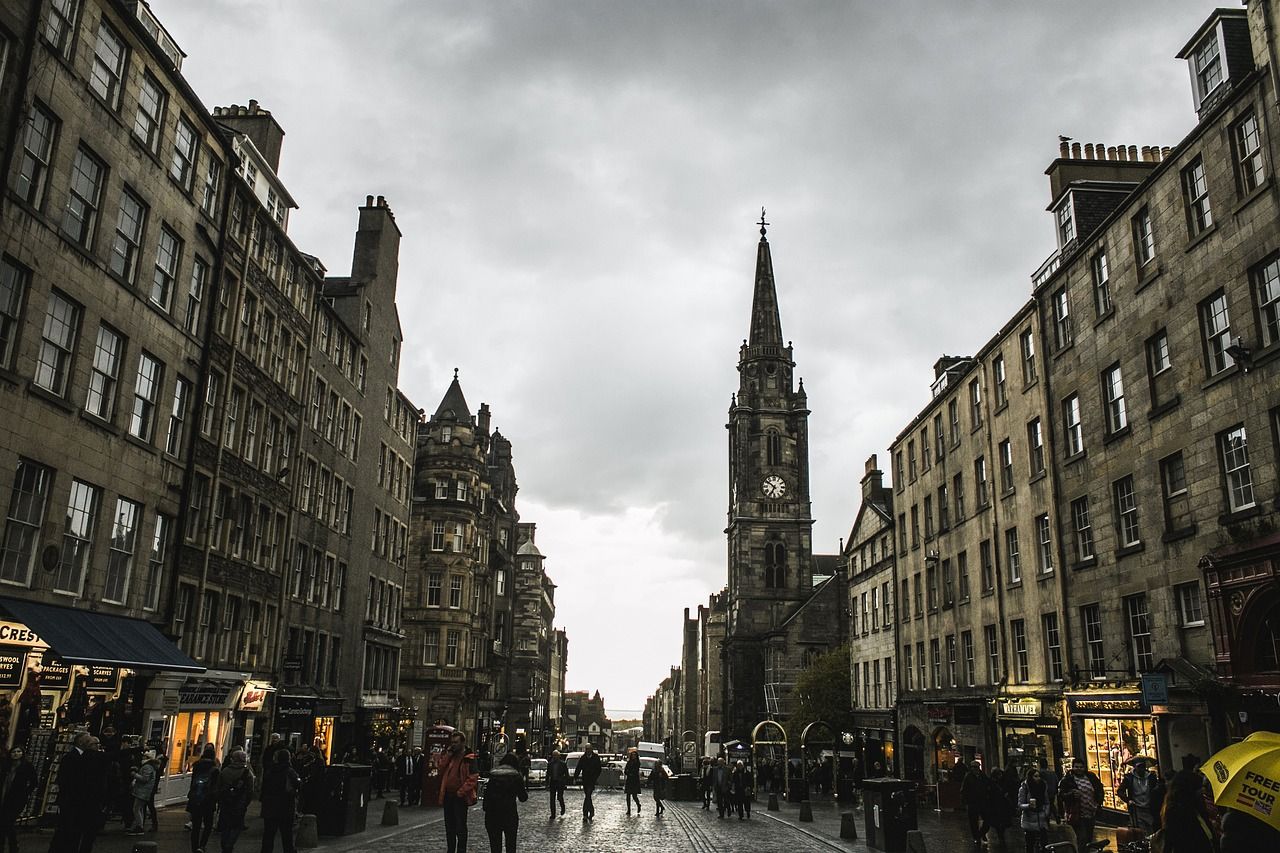Read update
- More things to know about Scotland
Summary
- Embrace the local culture by familiarizing yourself with Scottish phrases and slang, deepening cultural connections and making your visit more memorable.
- Don't underestimate the time needed to explore Scotland, as there are incredible destinations to visit, ranging from 3-4 days in cities to 2-3 weeks on scenic routes.
- Pubs are the best way to blend with locals, offering a taste of Scottish culture, traditional dishes, live music, and a vibrant social scene. Forge lasting memories and connect with the heart and soul of Scotland.
Scotland is the northernmost most country in the United Kingdom and is known for its castles, natural wilderness, lakes, and valleys. If travelers plan to visit Scotland, they will want to be sure you spend time visiting the many natural delights of the country such as the isles and highlands.
They may also want to spend time in their major cities such as Glasgow (home to incredible restaurants) and Edinburgh (an excellent place to spend the New Year's Eve), which are brimming with vibrant people and culture. However, there are additional things you should keep in mind before you trek to Scotland, such as the weather conditions, their national animal, when to tip, and what haggis is! Here are 10 important things to know before visiting Scotland.
UPDATE: 2023/09/02 18:57 EST BY LUANA FERREIRA
More things to know about Scotland
Scotland is a land of endless wonders and first-time travelers will be surprised. To help people to make the most of a trip to Scotland, this list has been updated with more things people should know before booking their tickets.
14 English Isn't The Only Language Spoken
English is the official language in Scotland, making communication among travelers easier. However, some regions, particularly the Highlands and Islands, also cherish Scots Gaelic. While English is widely spoken, embracing the local culture is more delightful by familiarizing yourself with Scottish phrases and slang.
Engaging with Scots in their vernacular deepens cultural connections and adds a layer of authenticity to your Scottish experience, making your visit all the more memorable.
Phrases like "wee" (small), "bonnie" (beautiful), and "aye" (yes) are part of the charming linguistic tapestry.
13 Stay At Least A Week In Scotland
Most first-time visitors probably regret not spending more days in Scotland. A quick internet research shows the country has incredible destinations to visit, such as Edinburgh Castle, Loch Lomond, and Loch Lomond.
The ideal length of stay depends on the visitor's interests. For a city break in Edinburgh or Glasgow, 3-4 days suffice to explore their cultural and historical treasures. A highlights tour, encompassing Edinburgh, the Highlands, and Loch Ness, warrants a 7-10 day stay. To fully immerse in Scotland's beauty and history, especially on scenic routes like the North Coast 500, allocate 2-3 weeks.
12 Going To Pubs Is One Of The Best Way To Blend With Locals
Hanging out in pubs is a tradition in Scotland, and the best way to blend with locals is by visiting these places. Pubs offer a glimpse of Scotoland's culture, camaraderie, and authenticity and is a place where they can savor traditional dishes like haggis and Scotch whisky, engage in friendly banter with locals, and immerse themselves in Scotland's vibrant social scene.
Pubs often feature live music, quiz nights, and storytelling sessions, providing an authentic taste of Scottish entertainment. It's here, amidst the warmth of the pub's atmosphere, that travelers can forge lasting memories, make new friends, and truly connect with the heart and soul of Scotland.
Scotland is home to the Old Forge, reportedly Britain's remotest pub.
11 Driving Can Be Challenging
Americans can drive in Scotland using their driver's license. However, driving in another country can be tricky, and travelers can check the U.K. Government's website for the rules.
One of the most significant adjustments is driving on the left side of the road, with the driver's seat on the right side of the vehicle. Negotiating roundabouts and understanding right-of-way rules is essential, as is navigating narrow rural roads and single-track routes in remote areas.
Drivers should pay attention to speed limits, strictly enforced throughout the country, and be mindful of parking regulations in urban areas. Additionally, Scotland has strict laws regarding drinking and driving, with a lower legal limit than in many U.S. states. Wildlife encounters and encountering livestock, like Highland cattle, are also considerations, particularly on rural roads.
Despite these differences, Scotland's well-maintained roads and breathtaking landscapes make it an ideal destination for a memorable road trip.
10 You're going to want a raincoat
Keep in mind that the weather in Scotland is often rainy and windy. This shouldn't dissuade you from visiting, but you'll want to pack a sturdy raincoat. You'll notice quickly that the locals typically wear raincoats and they don't usually tote around umbrellas. The reason is because of the wind.
It's far easier to wear a raincoat than to struggle with an umbrella that gets ripped out of your hand due to a sudden gust of wind. Not everywhere is windy either. The city of Edinburgh is the worst for winds.
- Best time to visit: May, June and September allows visitors to skip the crowds and still enjoy the good weather
9 Their national animal is a unicorn
That isn't a joke! The national animal of Scotland is indeed a unicorn. No, that doesn't mean you'll be guaranteed a sighting of this mythical creature. The reason the unicorn is a staple to Scotland is due to its meaning in Celtic mythology. The unicorn is a symbol of joy and fertility, even masculinity.
When you think about it that way it's a nice thought and perfectly represents the Scottish people. Scotland is known for having a long past of fables and myths, just look at the Loch Ness monster. So it's not all that surprising that they would have one of the most infamous legendary animals as their national one.
8 Make sure you understand what haggis is ahead of time
Haggis is a staple in Scotland. If you're traveling there for the first time, you should try it at least once. There are restaurants famous for serving outstanding haggis across Scotland.
However, make sure you're aware of what it is before you go so you don't risk offending anyone. That said, if you're a vegetarian or vegan you'll want to pass on the haggis altogether.
Haggis is a savory pudding made out of minced sheep's liver, heart, and lungs. Then it is mixed with onions, spices, herbs, and more to create a delicious side dish that is typically served with potatoes and leeks.
7 Locals aren't interested in your family pedigree
It may sound harsh, but it's true. When tourists travel to Scotland, one of the first things they like to do when talking to locals is brag about the Scottish blood in their family tree or lineage. The truth is, the Scots don't care about the 3% of Scottish blood you have in your veins from your twice-removed grandfather.
They hear the same thing from countless people all the time. After a while, it stops being interesting. Not to mention the fact that the Scots are full-blooded, they're not going to show much interest in someone who barely passes.
6 Tip the bagpipers
Playing the tartan octopus, or bagpipes is a big deal to many Scottish people. It's not uncommon to hear the devoted locals strolling around town playing the bagpipes for long stretches of time. If you happen to see someone playing the bagpipes well nearby and you stop to listen for a while, be courteous and ensure you leave them a tip (if they're accepting them).
Tipping is just a nice way to be polite and show respect for one of the traditional past times of the country. Bagpiping is a serious business in Scotland. They even host a world championship bagpiping competition.
5 Scottish people are super friendly so don't be afraid to ask for help
Scottish people are very friendly, so don't be afraid to ask for help and talk to people. Be sure you spend some time down in the pubs and bars of the cities. In most cases, locals will be eager to chat with you and share a few drinks. Be sure to try the coke and whiskey. It's incredibly sweet. Plus, if you need help, advice, or tips about getting around the country, locals are the perfect people to ask.
4 Plan a day to visit the Scottish Highlands
Scottish Highlands
Visiting the Scottish Highlands is an absolute must. If you're an Outlander fan, this is the place to go if you ever wanted to see Inverness in person. The Highlands is also where you'll find the mysterious Loch Ness. But before you go, make sure you plan out enough time to see everything.
Compose a plan ahead of time of the places you want to visit. There is lots to do and see, including national parks, dolphin-sighting on Moray Coast, shopping, dining, visiting historic castles, and simply free-roaming the majestic vistas of the area.
3 Remember to keep to the left
You must remember to keep to the left-hand side of the road in Scotland while driving. If you plan on renting a car while you're there, you need to be sure you understand the rules of the road are different there than they are in the United States.
It's something you need to keep in mind when you're walking near roads as well. Remember what direction the traffic is coming from.
There have been many accidents involving tourists who forget they need to drive on the left-hand side of the road and it's an easily avoidable mistake.
2 The accents are very thick
Whether chatting up the locals or taking a stroll through town, travelers are going to encounter many Scottish people having conversations. Keep in mind that while Scottish people do speak English, they have adapted their own vernacular and they have a very thick accent.
It might do you well to listen to some tapes and learn some of the common Scottish slang before you travel there, so you have an easier time understanding. You'll get used to it after a while.
1 There is no such thing as trespassing in Scotland
If you're traveling to Scotland, one thing you won't have to worry about is restrictions on where you walk, hike, and spend time outdoors. Scotland has a "free to roam" rule which allows people the universal right to go across all public, and some private, land without restrictions. That said, you will need to be responsible.
Breaking laws or being disruptive can still get you in trouble. But for the most part, travelers are free to hike wherever they please and even canoe in whichever bodies of water they'd like to further explore without being bothered.
Travelers should do their research beforehand to ensure they're exploring safely.
Next: 10 Places From Outlander You Can Actually Visit In Scotland


